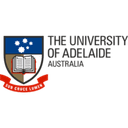Learn to identify, assess and treat addiction using evidence-based approaches, from screening through recovery management.
Learn to identify, assess and treat addiction using evidence-based approaches, from screening through recovery management.
This comprehensive course explores the biology of addiction and evidence-based treatment frameworks. Healthcare professionals learn to recognize addiction, assess severity, and implement appropriate interventions using the "Recovery Pathway" framework. The curriculum covers screening methods, withdrawal management, psychosocial interventions, and medication-assisted treatments, emphasizing the biological basis of addiction and recovery. Special attention is given to matching individuals with the right level of care and support throughout their recovery journey.
4.6
(12 ratings)
19,723 already enrolled
Instructors:
English
English
What you'll learn
Master the Recovery Pathway framework for addiction treatment
Identify and assess various stages of addiction and recovery
Understand the biological basis of addictive behaviors
Implement evidence-based intervention strategies
Develop skills in motivation assessment and enhancement
Match individuals with appropriate treatment options
Skills you'll gain
This course includes:
PreRecorded video
Graded assignments, exams
Access on Mobile, Tablet, Desktop
Limited Access access
Shareable certificate
Closed caption
Get a Completion Certificate
Share your certificate with prospective employers and your professional network on LinkedIn.
Created by
Provided by

Top companies offer this course to their employees
Top companies provide this course to enhance their employees' skills, ensuring they excel in handling complex projects and drive organizational success.





There are 5 modules in this course
This course provides a thorough understanding of addiction treatment and recovery management. Participants learn to identify addiction, assess severity, and implement appropriate interventions using the Recovery Pathway framework. The curriculum covers biological foundations, evidence-based treatments, and service delivery considerations. Through case studies and practical examples, learners develop skills in screening, assessment, withdrawal management, and long-term recovery support.
Addiction and Recovery
Module 1
Risk Behaviours and Brief Intervention
Module 2
Managing Withdrawal
Module 3
Promoting Sustained Recovery
Module 4
Putting It All Together
Module 5
Fee Structure
Instructors

2 Courses
Distinguished Addiction Researcher and Education Innovation Leader
Femke Buisman-Pijlman serves as Associate Professor and Academic Program Director (Health) at the University of Melbourne's School of Professional and Continued Education, where she leads the development of professional healthcare education programs. Her expertise spans addiction studies, neuroscience, and educational innovation, with particular focus on understanding the biopsychosocial factors influencing drug use disorders. As a pioneer in online education, she developed groundbreaking courses including "Managing Addiction: A Framework for Successful Treatment" and "Essential Human Biology" while at the University of Adelaide. Her research examines the relationships between early life experiences, biology, and drug use, contributing significantly to understanding addiction through a comprehensive biopsychosocial lens. An award-winning educator recognized for excellence in teaching and STEM education, she specializes in creating accessible, engaging courses that effectively communicate complex scientific concepts to diverse audiences. Her work in curriculum development and professional education has transformed how addiction studies and human biology are taught, while her research continues to influence understanding of the biological, psychological, and social factors that shape addiction risk and recovery.

1 Course
Distinguished Addiction Specialist and Pharmacology Expert
Dr. Andrea Gordon serves as Senior Lecturer and Program Director of Addiction Studies in the Discipline of Pharmacology at the University of Adelaide, where she leads the International Program of Addiction Studies in collaboration with Virginia Commonwealth University and King's College London. Her research focuses on substance use during pregnancy and improving outcomes for women and their families, with significant contributions to understanding neonatal abstinence syndrome and prenatal substance exposure. As Course Coordinator for the Graduate Certificate in Drug and Alcohol Studies, she brings extensive teaching experience across Allied Health, Nursing and Midwifery, and Pharmacology programs at both undergraduate and postgraduate levels. Her work spans both academic and government sectors, contributing to improved health outcomes across various areas. A successful PhD supervisor with eight completions, she has guided research ranging from fetal alcohol spectrum disorder to rare diseases and venous access. Her publications have garnered over 2,200 citations, reflecting her significant impact on addiction science and pharmacology. Through her leadership of the triple-badge International Program in Addiction Studies, she continues to shape global understanding of addiction treatment and prevention while maintaining active research into substance use during pregnancy.
Testimonials
Testimonials and success stories are a testament to the quality of this program and its impact on your career and learning journey. Be the first to help others make an informed decision by sharing your review of the course.
Frequently asked questions
Below are some of the most commonly asked questions about this course. We aim to provide clear and concise answers to help you better understand the course content, structure, and any other relevant information. If you have any additional questions or if your question is not listed here, please don't hesitate to reach out to our support team for further assistance.



